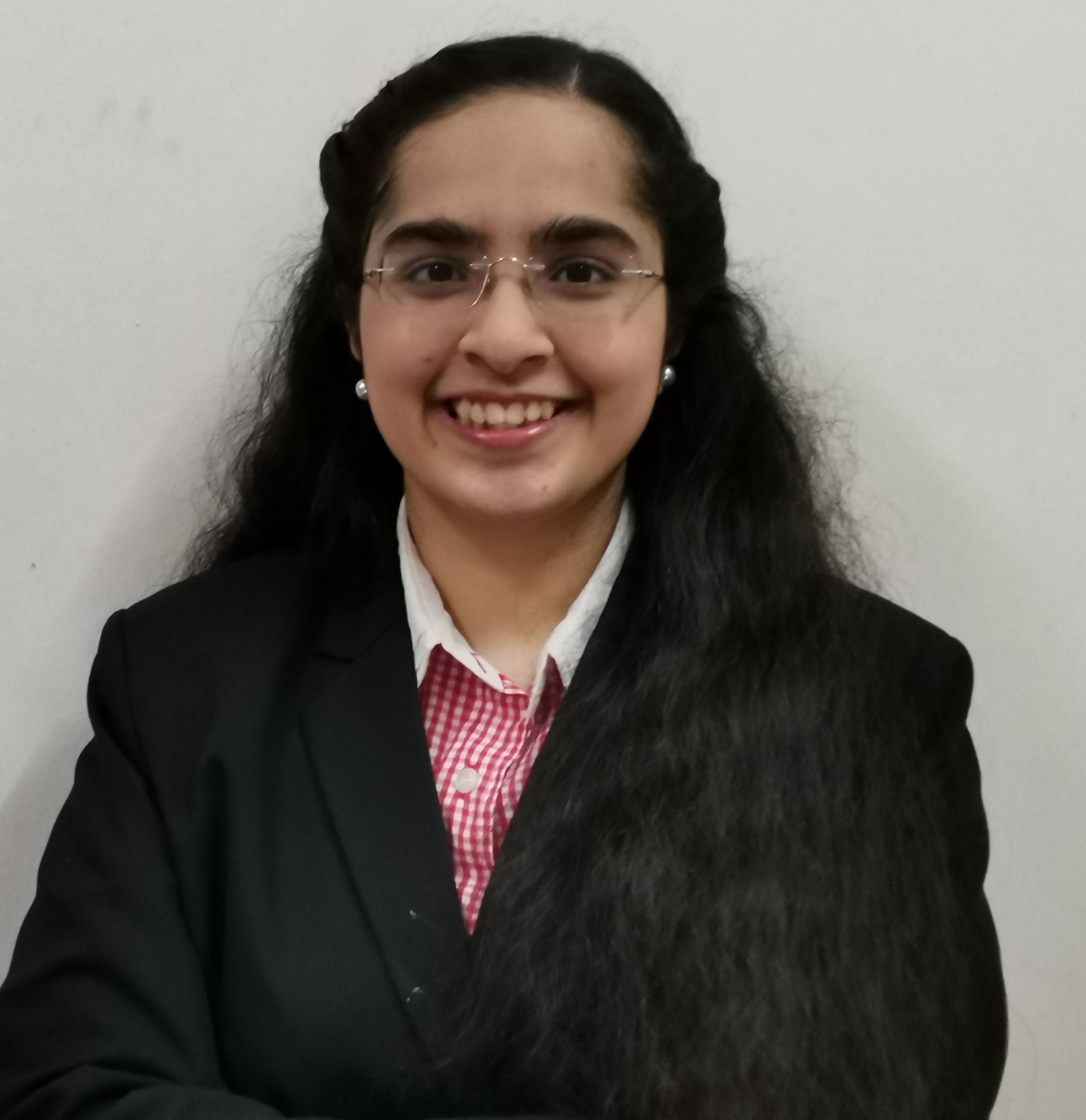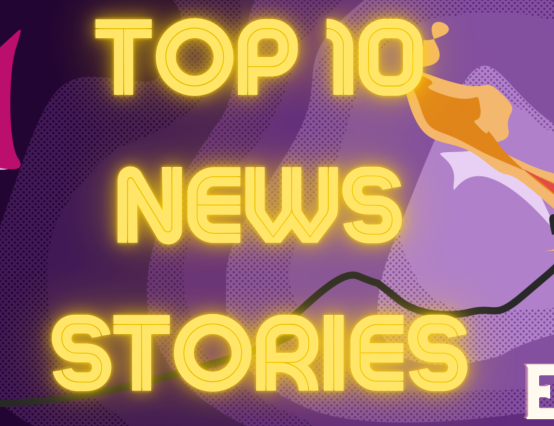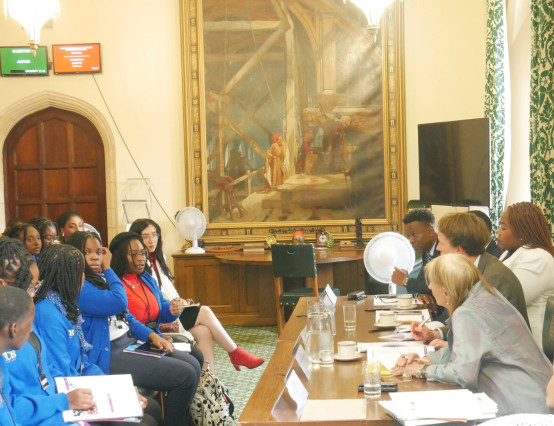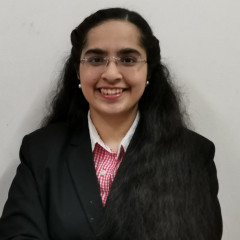Could you first introduce yourself to the reader? 
Storyteller, networkaholic, youth leader, and mental health advocate – that is me, Anagha Rajesh, in a nutshell. I am originally from India and currently living in the UAE. I am 19, the CEO and founder of mental health charity, MindChamps.
Tell us a little about your background?
In addition to being Founder and CEO of MindChamps, I’m an undergraduate student and advocate for the Girls in Science 4 SDG’s platform under the aegis of the United Nations. I am a TEDx speaker as well as a certified competent communicator by Toastmasters International. My articles have been published by several platforms, including Malala Fund’s newsletter ‘Assembly’, MarkTechPost.com, The Intersect, Learning and Creativity.com.
I co-founded the Nuclear 4 Peace social media campaign in 2019 to help create awareness about the potential role of nuclear technology in sustainable development. In addition, I led a team of fellow students to come up with the basic design for a device that can potentially detect Alzheimer’s far before an individual starts showing symptoms of the disease. This project was appreciated by UAE’s mission to the International Atomic Energy Agency as well as the Federal Authority for Nuclear Research.
Furthermore, I am an alumnus of the 1000 Girls 100 Futures Mentorship Program of the New York Academy of Science. I have been a speaker at the Youth Stem Summit 2020, Emirates Youth Platform 2021 and Empowerment Talks.
What inspired you to create Mindchamps, and can you tell us more about it?
MindChamps started off as a passion project during my time at the 1000 Girls 1000 Futures mentorship program. There were girls from across the world, and we were having a casual conversation. The topic of mental health came up, and we painfully realized that it is stigmatized in most communities across the world. That’s when we decided to launch an e-magazine called MindChamps to create awareness about the issue and empower more young people to open up about their experiences.
Once we launched the first edition of the e-magazine, we were overwhelmed by the positive response. That’s when we decided to shape MindChamps into a full-fledged youth organization.
Currently, we are a team of 30+ high school and university students creating content, pursuing social media campaigns, organising informative events, and partnering with psychologists to make mental health resources accessible to youngsters across the globe.
We have been able to support 200+ young people on their mental health journeys. We have also involved educators, parents, local businesses and schools for autistic students in our initiatives to drive change.
I have a personal connection to mental health as well. My uncle, who suffers from schizophrenia, was denied access to mental health treatment for over a decade because my community considered it shameful. I have seen first-hand how he suffered from the condition, and the terrible treatment meted out to him in society. In addition, I have seen classmates and friends struggle to seek support for anxiety and panic attacks. This is why I am so passionate about mental health and accessibility.
What do you hope to change?
There are three major aspects of mental health that I wish to change through MindChamps:
The stigma around mental health often prevents young people from seeking support.
The lack of access to mental health specifically for individuals from minority communities
Lacuna in inclusive narratives about mental health, specifically relating to individuals from Asian and African communities.
What’s your biggest concern with young people and their mental health?
Young people are unable to find safe spaces to talk about their mental health. I think this is the biggest concern. They are afraid of being judged, worried about being perceived as weak. This has to change. In addition, we need parents and educators to validate the emotions of young people and support them on their wellness journey.
We have come a long way, and I am sure MindChamps can play a part in helping young people become more confident to talk about their mental health much like they would about their physical health.
As Mindchamps is an international organisation, how would you say mental health varies across different cultures and countries?
Mental health is still stigmatized and downplayed in most communities across the world. The narratives may differ on the surface, but the fact that individuals suffer in silence most of the time is a common thread that runs across diverse cultures. Young people across the world are seeking safe spaces so that they can have meaningful conversations about mental health.
At the same time, the way we address mental health in different countries needs to be respectful of their cultural aspects. The campaigns and workshops that we do are tailored to address local challenges and involve local youngsters in the best way possible.
What has been the most significant moment with Mindchamps so far?
There is no one significant moment that I think of. We started off in 2019, and we have come a long way. There have been several milestones that shaped our journey. The launch of our first e-magazine was the first milestone. The launch of our podcast series ‘Yours Mindfully’ in 2020, featuring eight changemakers in the mental health space, was another significant milestone. We launched our anxiety awareness campaign ‘Ataraxia’ in collaboration with Road to Nepenthe. This campaign was a huge success, and Girl Up Songbird featured us. We launched the Candescent Program to train young people in the art of creating content for mental health. We got on board experienced mentors and trained eight youngsters in the first cohort. This is one of our most memorable moments.
‘It’s All in the Mind’ speech contest we organized witnessed 50+ contestants from across the world explaining mental health concepts in 90 seconds. This contest was a turning point in empowering young people to speak about mental health.
We are all set to register ourselves as a 501 (c)(3) non-profit very soon. And we are excited for this milestone in our journey!
Are there any particular developments or changes you hope to see? If so, what are they?
MindChamps recognized that making career choices while in high school or freshman year of university can be very stressful. So, we partnered with psychologists to offer free career counselling sessions to 10 students who cannot afford a session otherwise. The students who availed of this service reached out to us and told us how beneficial this has been for them. This is the sort of change we want to create on a larger scale.
In addition, we want to incorporate mental health into education to benefit students, parents, and teachers. We want to also work closely with policymakers to have a tangible on-ground impact, especially among young people in underprivileged communities.
Do you have any upcoming projects?
MindChamps is working on developing a video game that can be played in the classroom to analyze students' mental health and offer them actionable steps to move forward on their wellness journey. Students are in their most natural selves when they are playing. By looking at their responses, we could detect the mental health issues that may otherwise go undetected. We were recently shortlisted to the finals of Be a Pirate Challenge to pitch this video game to seasoned innovators. We are currently working on the feedback we received so that we can bring this idea to life.
In July, we are focusing on the theme of mental health in education. We will be hosting several conversations and publishing articles on our platform. If you are a young person who wants to talk about how mental health can be better incorporated into education, feel free to reach out to us.
We are also partnering with social networking platform Spikeview to focus on the role of social media in mental health. You can look out for some cool initiatives coming up in this space very soon!
Follow our journey on:
Instagram: https://www.instagram.com/mind.champs/
LinkedIn: https://www.linkedin.com/company/mind-champs/mycompany/?viewAsMember=true
Website: http://mindchampsorg.weebly.com
Do you have any advice for young people struggling with their mental health?
My key message is your struggles are valid. You are not alone. Regardless of what society may try to tell you, your emotions and your feelings are valuable. Reach out to people in your community that you trust. If you are not comfortable with people in your local community, reach out to online communities. A lot of people are out there to support you. You don’t have to suffer in silence.







0 Comments